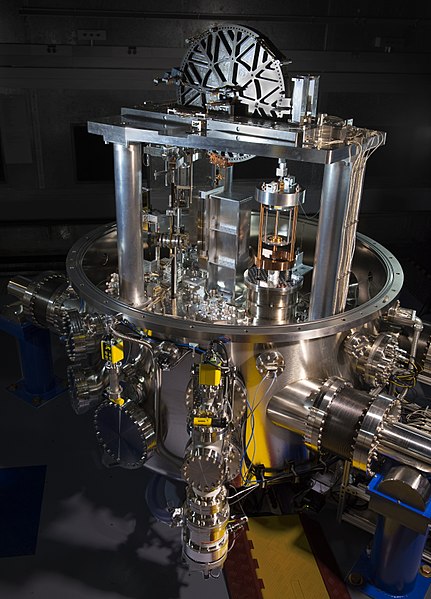National Physical Laboratory (United Kingdom)
The National Physical Laboratory (NPL) is the national measurement standards laboratory of the United Kingdom. It sets and maintains physical standards for British industry.
NPL's main entrance on Hampton Road
The Electricity Division of the National Physical Laboratory in 1944
Robert Watson-Watt
Louis Essen at right, with Jack Perry
Metrology is the scientific study of measurement. It establishes a common understanding of units, crucial in linking human activities. Modern metrology has its roots in the French Revolution's political motivation to standardise units in France when a length standard taken from a natural source was proposed. This led to the creation of the decimal-based metric system in 1795, establishing a set of standards for other types of measurements. Several other countries adopted the metric system between 1795 and 1875; to ensure conformity between the countries, the Bureau International des Poids et Mesures (BIPM) was established by the Metre Convention. This has evolved into the International System of Units (SI) as a result of a resolution at the 11th General Conference on Weights and Measures (CGPM) in 1960.

A Kibble balance, which is used to measure weight via electric current and voltage. With this instrument, the measurement of mass is no longer dependent on a defined mass standard and is instead dependent on natural physical constants.
Computer-generated image realising the international prototype of the kilogram (IPK), made from an alloy of 90-per cent platinum and 10-per cent iridium by weight






